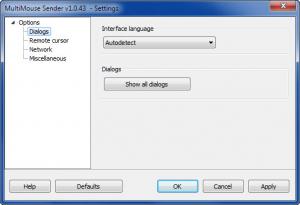

Guanylyl cyclase C (GUCY2C) is the index example of cancer mucosa antigens 5 and a potential target for colorectal cancer vaccines 6- 8. More importantly, it is presumed, but unverified, that tolerance limits autoimmunity and tumor immunity through lineage-unbiased elimination of self-antigen-specific cells, eliminating CD4 + T cells, CD8 + T cells, and B cells 4. Currently, it is unknown if elimination of self-antigen-specific T and B cells from the naïve lymphocyte pool restricts vaccine success in patients. Although the critical role of tolerance in preventing autoimmunity is established 3, its impact on cancer vaccines remains undefined. One potential mechanism limiting vaccine efficacy is self-tolerance, which affects the success of cancer vaccines by eliminating effector T and B cells through central and peripheral tolerance mechanisms. Identification of mechanisms limiting cancer vaccine efficacy, and development of methods to overcome these limitations, will expand the breadth of treatable tumors and improve patient outcomes 2. Thus, identification of self-antigens characterized by selective CD4 + T-cell tolerance and abrogation of such tolerance through self-antigen-independent T-cell help is essential for future immunotherapeutics.ĭespite recent Food and Drug Administration (FDA) approval of the first cancer vaccine (sipuleucel-T), immunotherapy remains a suboptimal therapeutic approach available only for a limited subset of tumors 1.

Incorporating CD4 + T-cell epitopes from foreign antigens into vaccines targeting self-antigens in melanoma (Trp2) and breast cancer (Her2) produced similar results, suggesting selective CD4 + T-cell tolerance underlies ineffective vaccination against many cancer antigens. Incorporating CD4 + T-cell epitopes from foreign antigens into vaccines against GUCY2C reconstituted CD4 + T-cell help, revealing the latent functional capacity of GUCY2C-specific CD8 + T- and B-cell pools, producing durable antitumor immunity without autoimmunity. Although selective CD4 + T-cell tolerance blocked GUCY2C-specific antitumor immunity and memory responses, it offered a unique solution to the inefficacy of GUCY2C vaccines through recruitment of self-antigen-independent CD4 + T-cell help. In mice, antigen-specific CD4 + T-cell tolerance restricted CD8 + T- and B-cell responses targeting the endogenous self-antigen guanylyl cyclase c (GUCY2C) in colorectal cancer. In contrast to this prevailing paradigm, we demonstrate that for some antigens, self-tolerance reflects selective elimination of antigen-specific CD4 + T cells, but preservation of CD8 + T- and B-cell populations.

Self-tolerance, presumably through lineage-unbiased elimination of self-antigen-specific lymphocytes (CD4 + T, CD8 + T, and B cells), creates a formidable barrier to cancer immunotherapy.


 0 kommentar(er)
0 kommentar(er)
